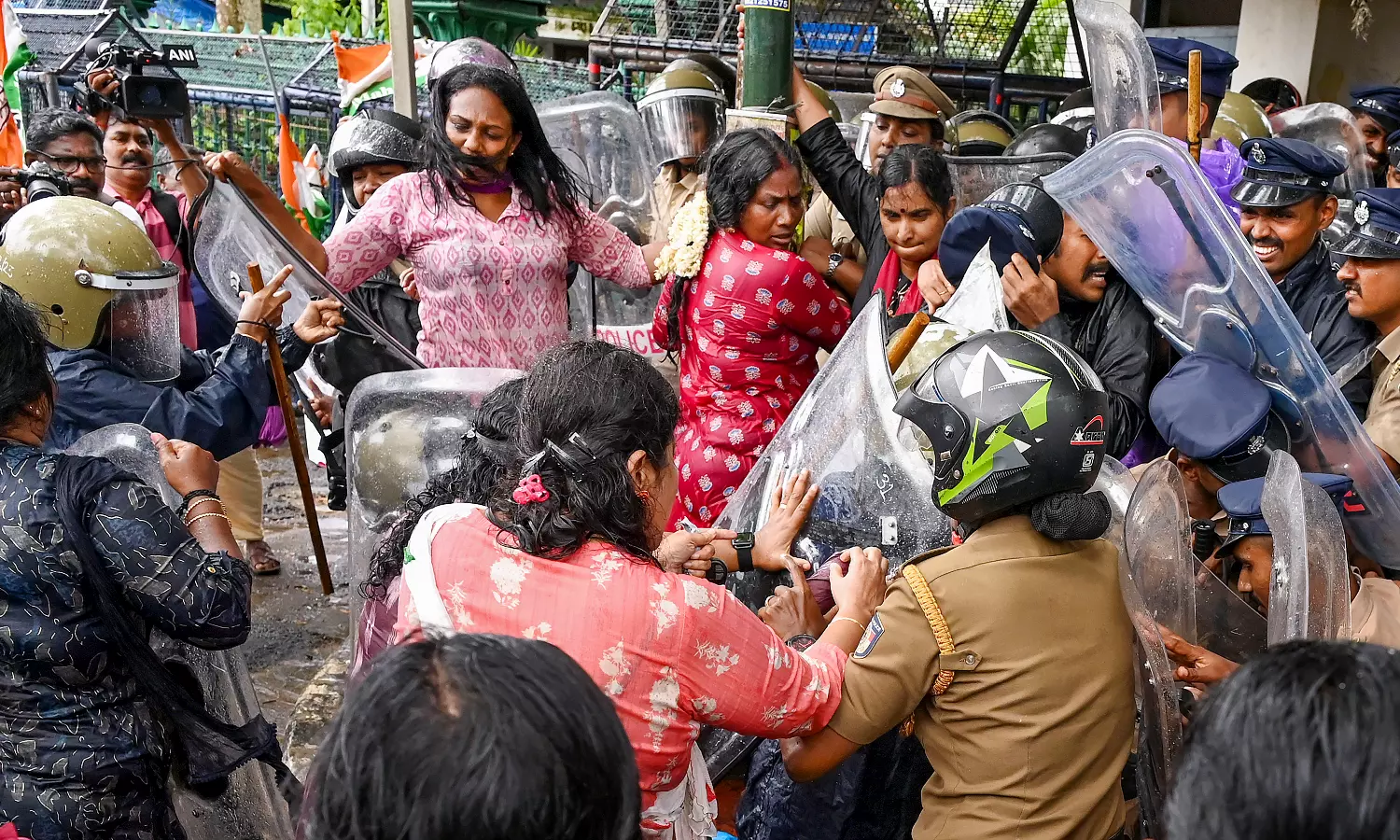M.P. Nathanael | Hema Committee report exposes the casting couch issue in filmdom

The disclosure of the Justice K. Hema Committee report on issues relating to the women in Kerala’s Malayalam film industry, with greater emphasis on sexual harassment, may not have come as a surprise to many who follow filmdom, though the report from an official committee set up by the government has stirred a hornet’s nest. It is widely known that women seeking entry into the film world must perforce go through the casting couch, barring those hailing from a film background.
In April 2018, Sri Reddy, a Telugu actress who debuted in the film Nenu Namma Abbardam way back in 2011, followed by two more films, sat on a topless protest right in front of Movie Artists Association office in Hyderabad as it refused to grant her membership of the association. Membership of the association is mandatory for further roles after the completion of three films. While protesting, she disclosed that she had to go through the casting couch to bag the films in which she had acted and that was the only route in the entire Telugu film industry.
Bollywood is no exception. Actor Kangana Ranaut minced no words to reveal that every actress has to submit to the sexual favours demanded by directors or heroes of the films in order find a place in the film. From her own experience, actor Suchitra Pillai admitted to sexual favours being sought by powerful film personalities. She refused certain films as she did not want to “compromise”.
Even male actors at times must go through the ordeal of having to go through sexual overtures from directors when they are struggling to find entry into the films. They, however, have the option to just walk out and approach other directors for roles in their films. Having gone through the ordeal, actors like Rajeev Khandelwal and Ranveer Singh had turned down offers in certain films.
The formation of the Justice Hema committee was a sequel to the sexual assault on a prominent Malayalam film actress by actor Dileep and his cronies in a moving car way back in February 2017 in Kochi, which led to an uproar in Kerala. Some of the leading actresses and women in the industry formed the Women in Cinema Collective (WCC) and demanded action against the culprits, apart from probing the issues confronting the women actors and artistes.
A three-member committee headed by Justice K. Hema that was tasked to go into various issues confronting the women submitted its report to the Kerala government in December 2019. It was not made public as Justice Hema had written to the government in February 2020 not to release the 295-page report due to the “sensitive nature of the information”.
After a petition under the Right to Information Act and the intervention of the Kerala high court, the report was released after redacting 63 pages which were considered highly sensitive. The high court has demanded that the entire report be sent to it in a sealed cover to arrive at a solution on “how to protect these vulnerable women and what action can be taken against the perpetrators of the crime”.
With the report now in the public domain and making headlines in the media, leading to debates, some actors like Sreelekha Mitra, Revathi Sampath and Minu Muneer have come out openly alleging sexual harassment or assault against powerful personalities in Kerala film circles. Consequent to the allegations of Sreelekha Mitra, a Bengali actor, that Ranjith had misbehaved with her, he resigned from the post of chairperson of the government-run Kerala Chalachitra Academy. While Sreelekha has filed a formal complaint with the Kochi police, 18 others have registered complaints in police stations, all of which are being transferred to the Special Investigation Team (SIT) formed to carry out the investigations.
Another actor, Minu Muneer, came out with allegations against actor Mukesh, now a CPI(M) MLA in Kochi, Jayasurya, and two others for sexually exploiting her during the shooting of a movie. There has since been a clamour for the resignation of Mukesh as MLA.
While actor Siddique resigned from Association of Malayalam Movies Artists (AMMA) as general secretary after actor Revathy Sampath’s disclosure that he had sexually exploited her, the entire executive committee of 17 members of the AMMA led by its president, senior actor Mohanlal, had resigned and the committee disbanded last week. The elections for new committee will be held within two months.
With another actor Sonia Malhar joining the bandwagon of survivors, many more victims may come out openly against the perpetrators, but at a heavy price, for they may never be offered new roles. Those well past their prime have nothing to lose. Further punitive action could be initiated against those who ventured to seek sexual favours from women seeking roles in films after the submission of the SIT report.
The Hema Committee report, though, has dwelt on sexual exploitation of women in Malayalam cinema, and has highlighted other issues like lack of basic facilities of toilets, lack of proper transport, discrimination in payment of remuneration to men and women actors and artists, online harassment and the lack of a grievance redressal mechanism. These are problems that can be solved without much ado by the directors. But the setting up of grievance redressal mechanism calls for government intervention. Since the internal complaints committees cannot be effective enough in film projects, the formation of judicial tribunals is
under consideration by the government. Immediate steps need to be taken to monitor ground-level implementation of the recommendations of the Justice Hema Committee report in a time-bound manner. The #MeToo movement may soon see the powerful and the mighty bracing themselves to counter allegations hurled at them by their victims.

